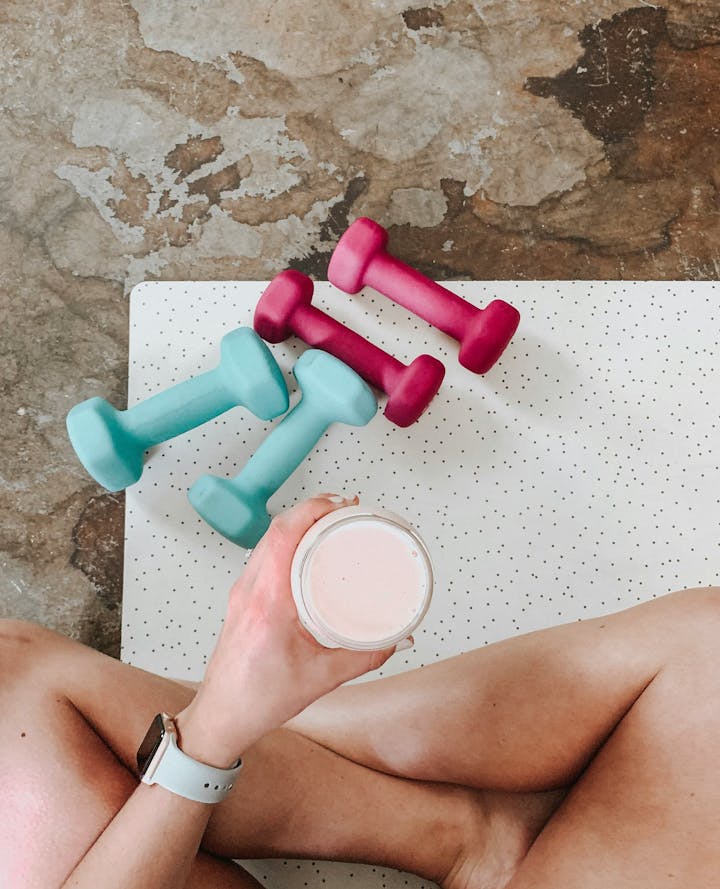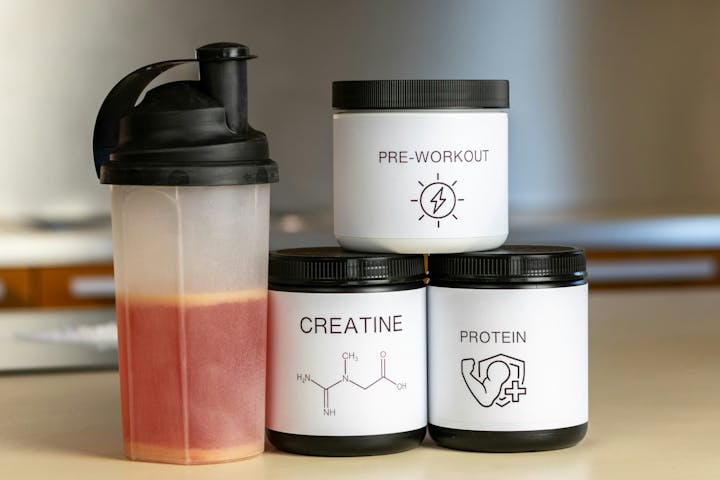Creatine is renowned as one of the most powerful yet misunderstood supplements. Despite misconceptions that it is a steroid or harmful to organs, creatine is a completely natural compound available through diet and synthesized by the body. It plays a crucial role in our metabolism and provides numerous health benefits, not just for athletes, but for everyone.
What is creatine?
Creatine is a natural substance found in foods like meat and fish. The body also produces it using three amino acids: arginine, glycine, and methionine. Most of the creatine in our body is stored in muscles as phosphocreatine, with smaller amounts in the brain, kidneys, and liver. Phosphocreatine helps quickly replenish energy (ATP), which muscles use for strong contractions during activities like exercise.

Benefits of creatine
1. Strength and muscle mass: Creatine increases available energy during intense physical exertion, leading to improved performance and muscle growth. Studies have shown that creatine supplementation can boost muscle strength by 5-15%.
2. Cognitive functions: Recent research indicates that creatine also benefits the brain. It can reduce mental fatigue and improve memory and reasoning skills. A study published in Psychopharmacology found that creatine supplementation enhanced cognitive performance during mental tasks.
3. Neurological benefits: There is growing evidence that creatine may help with neurological conditions such as Parkinson’s, Huntington’s, and ALS. The supplement may slow neurodegeneration and improve overall neuron health.
Misconceptions and reality
The idea that creatine is only for bodybuilders is a significant misconception. Everyone can benefit from creatine, especially those on diets low in meat and fish. Vegetarians and vegans, who may have lower natural creatine levels, can experience significant benefits from supplementation.

Creatine and nutrition
For those who prefer not to take supplements, it’s important to consume creatine through nutritious meals. Foods rich in creatine include:
- Fish (such as herring, salmon, and tuna)
- Beef
- Pork
- Chicken and turkey (a bit less)
However, the amount of creatine obtained from food is often limited. For optimal results and convenience, supplementation can be a practical solution.
Usage and dosage of creatine
A daily dose of 5 grams of creatine is sufficient. There’s no need to start with a higher dose (loading phase). It’s important to take creatine consistently; no breaks are necessary. The belief that you need to “cycle” (alternate periods of use and rest) is a common myth. Research shows that daily use of creatine is safe and does not pose health risks. Consistent use leads to the best results.
Potential side effects and safety
Creatine is generally safe to use. A common side effect is water retention, which means your muscles hold extra water. This can lead to a temporary weight gain, but this effect is usually short-lived and decreases over time. Long-term use of creatine has not been shown to have negative effects on the kidneys or liver in healthy individuals, as confirmed by extensive studies.

Creatine for everyone
Not only athletes, but non-athletes can also benefit from creatine. Its advantages include enhancing overall physical and mental health. For older adults, creatine can help maintain muscle mass and cognitive functions. For individuals with neurological conditions, creatine offers hope as a supportive therapy.
Costs and accessibility
One of the most appealing aspects of creatine is its affordability. The cost per dose is low, often cheaper than a cup of coffee. This makes it one of the most cost-effective supplements on the market, with a high return on investment for health and wellness.
Conclusion
Creatine is a safe, effective, and versatile supplement that offers benefits beyond just athletic performance. It supports both physical and cognitive functions and provides potential aid for neurological disorders. With extensive scientific backing and numerous health benefits, creatine is a valuable addition to the daily routine of almost anyone. Regular use of creatine can help you push your physical and mental boundaries without significant drawbacks.
Need advice or support during your training journey? At Physicum we are happy to help!
FAQ: Creatine
1. What is creatine?
Creatine is a naturally occurring substance found in meat, fish, and also produced by your body. It helps your muscles quickly generate energy during short, high-intensity efforts like sprinting or lifting weights.
2. Who can benefit from creatine?
Almost everyone! Athletes, people who want to build muscle, vegetarians/vegans (who usually have lower natural creatine levels), and even older adults who want to maintain muscle and cognitive function.
3. What are the benefits?
Increases strength and muscle mass
Supports recovery between sets
May improve cognitive functions like memory and concentration
Potentially supportive in some neurological conditions
4. How much creatine should you take?
Maintenance dose: 3–5 grams per day
Loading phase (optional): 20 grams per day, split into 4 doses for 5–7 days
Taking it daily is enough – no breaks or cycles are needed.
5. Are there any side effects?
Creatine is safe for healthy people. The most common side effect is temporary water retention in the muscles, which can cause a small weight increase. Long-term use does not harm the kidneys or liver.
6. How should you take it?
Ideally with a meal or a drink containing carbohydrates to improve absorption. Make sure you stay well hydrated.
Sources
- Rawson, E.S., et al. “Creatine supplementation and resistance exercise: an update.” Journal of the International Society of Sports Nutrition, 2017.
- Rae, C., et al. “Oral creatine monohydrate supplementation improves brain performance: a double-blind, placebo-controlled, cross-over trial.” Psychopharmacology, 2003.
- Avgerinos, K.I., et al. “Effects of creatine supplementation on cognitive function of healthy individuals: A systematic review of randomized controlled trials.” Experimental Gerontology, 2018.
- Bender, A., et al. “Creatine supplementation in neurodegenerative diseases: End of story?” Amino Acids, 2015.
- Burke, D.G., et al. “Effect of creatine and weight training on muscle creatine and performance in vegetarians.” Medicine and Science in Sports and Exercise, 2003.
- Kreider, R.B., et al. “International Society of Sports Nutrition position stand: safety and efficacy of creatine supplementation in exercise, sport, and medicine.” Journal of the International Society of Sports Nutrition, 2017.
- Mihic, S., et al. “Acute creatine loading increases fat-free mass, but does not affect blood pressure, plasma creatinine, or CK activity in men and women.” Medicine and Science in Sports and Exercise, 2000.
- Poortmans, J.R., and Francaux, M. “Long-term oral creatine supplementation does not impair renal function in healthy athletes.” Medicine and Science in Sports and Exercise, 1999.
- Gualano, B., et al. “Creatine supplementation: assessing the risk of renal dysfunction.” International Journal of Sports Nutrition and Exercise Metabolism, 2010.

